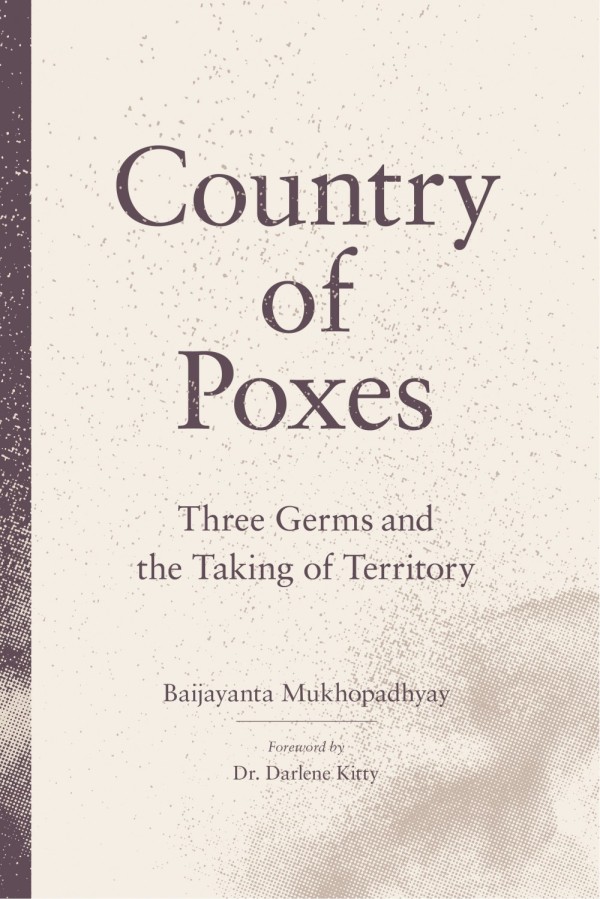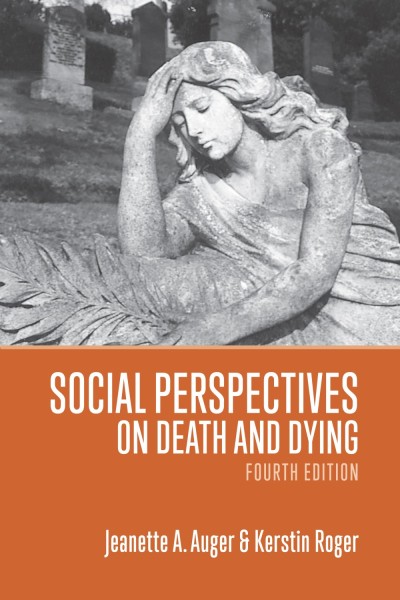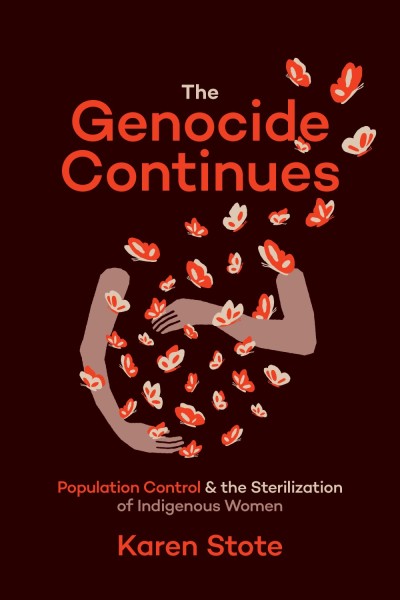
Country of Poxes
Three Germs and the Taking of Territory
This story of land theft through the course of three diseases exposes how colonialism facilitates illness and profits from it.
About the book
Country of Poxes is the story of land theft in North America through three diseases: syphilis, smallpox and tuberculosis. These infectious diseases reveal that medical care, widely considered a magnanimous cornerstone of the Canadian state, developed in lockstep with colonial control over Indigenous land and life.
Pathogens are storytellers of their time. The 500-year-old debate over the origins of syphilis reflects colonial judgments of morality and sexuality that became formally entwined in medicine. Smallpox is notoriously linked with the project of land theft, as colonizers destroyed Indigenous land, economies and life in the name of disease eradication. And tuberculosis, considered the “Indian disease,” aroused intense fear of contagion that launched separate systems of care for Indigenous Peoples in a de facto medical apartheid, while white settlers retreated to sanatoria in the Laurentians and Georgian Bay to be cured. In this immersive and deeply reflective book, physician and activist Dr. Baijayanta Mukhopadhyay provides riveting insights into the biological and social relationships of disease and empire. Country of Poxes considers a future of health in Canada that heeds redress and healing for Nations brutalized by the Canadian state.
What people are saying
James Daschuk, author of Clearing the Plains“This book is an important contribution to our understanding that disease is as political as it is biological. In a highly accessible way, Dr. Mukhopadhyay threads three of our most dreaded diseases into the story of Canada’s development as a settler-colonial state. A thoughtful study of fearsome infections and the human forces that shaped them, Country of Poxes is a great book and a valuable tool to make sense of our own troubled times.”
Christa Couture, author of How to Lose Everything“Country of Poxes not only reveals how infections of the past have shaped our present, it causes us to rethink our understanding of disease, colonization, togetherness and care. Mukhopadhyay’s voice has the insight of a health worker woven with the beauty of a poet, tying the personal and historical into a riveting work.”
Julia Robinson, executive editor, PLOS Global Public Health“In this remarkable book, Baijayanta Mukhopadhyay is at once historical and searingly contemporary, personal and visionary, and above all, sharply attuned to the ways in which colonialism continues to shape modern-day systems of health care in North America. It is an essential text that will fundamentally transform the way we understand and navigate our current age of pandemic as well as shine a light on how to collectively dismantle the systems of oppression that got us here.”
Erika Arteaga, activist for the right to health, co-coordinator of the People’s Health Movement Ecosystems and Health circle“A reflection for our times that demystifies medicine as a tool of power. We are in need of decolonizing western knowledge, and the humble critique in Country of Poxes points to opportunities to heal our world with solidarity.”
Contents
- Pandemic Past
- Syphilis
- Smallpox
- Tuberculosis
- Fevers Future







_cover-FINAL_400_600_90_s.jpg)





